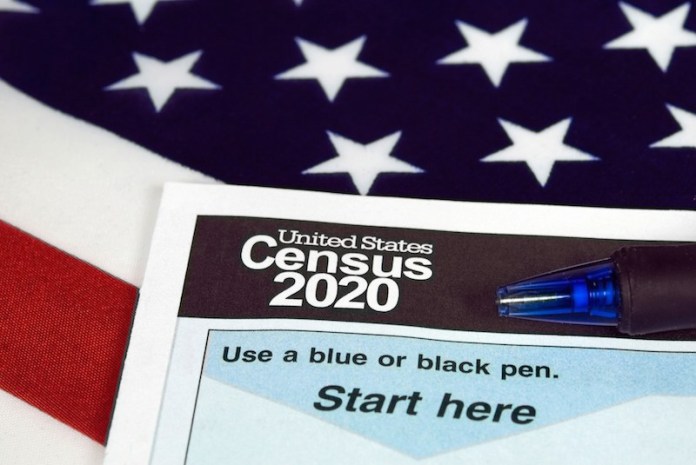The United States Census Bureau will be ending all of its 2020 counting efforts — including door-knocking, and online, mail, and phone responses — on September 30, a full month earlier than it had previously planned.
The sudden deadline change, according to bureau director Steven Dillingham, was to “accelerate the completion of data collection and apportionment counts by our statutory deadline of December 31, 2020, as required by law and directed by the Secretary of Commerce.”

Aside from finding population changes and gathering information of who makes up the U.S., data derived from the decennial census is critical in addressing the country’s needs, such as determining political representation and the allocation of federal funds for communities and programs related to education, hospitals, transportation, and veteran assistance among others.
With the deadline cut short, census advocates say the bureau will have a much harder time trying to reach people, including those from low-income communities, people of color, and immigrants.
As of August 2, only 63% of the nation’s households had responded to the census, a percentage that has added to the worries of census advocates. That leaves approximately four of every 10 households still uncounted.
“If we don’t respond right away, the money that has been designated for our community for the next 10 years will go to waste. The benefits for each year and each person who will not be counted will be wasted. Your response is very important. The census is important because it will help the Filipino community to plan for the future,” Ivy Daulo, a Filipino spokesperson of the Census Bureau, said in a recent press call.
Also on Tuesday, the National State Data Steering Committee (SDC), a network that has long worked with the Census Bureau in working with state governments, sent out a letter urging Dillingham to consider the consequences of the earlier deadline.
“The credibility of the U.S. Census Bureau as the gold standard of data in the United States will be undermined by rushing an incomplete census count to meet deadlines,” the group wrote.
The original census counting deadline was July of this year, however was extended to October 31 due to the COVID-19 pandemic — a move President Donald Trump supported.
However, Dillingham last week, said in a hearing before the House Oversight and Reform Committee that “the Census Bureau and others really want us to proceed as rapidly as possible.”
Advocates and Democrat lawmakers have also been worried that the push for an earlier deadline was an effort by the Trump administration to gain a political advantage by suppressing minority representation as voting districts are redrawn.
Trump had recently ordered the census bureau to exclude undocumented immigrants from census totals for use in reapportioning the House, and was quickly challenged by lawsuits.
“Trump is again seeking to destroy the integrity and accuracy of the census for partisan gain. If his plan proceeds, the census won’t be a true portrait of America, and every state and community will have to live for ten years under the harm of an unfinished count,” Gupta said in a press release last week, before the deadline change announcement.
“Curtailing operations is an obvious ploy to guarantee the Census Bureau won’t be able to finish counting millions of people — especially those hit hardest by the pandemic,” she added. “The Census Bureau must have the time and space it needs for a safe and accurate count. Congress must extend the 2020 census reporting deadlines in the next COVID-19 package.”






